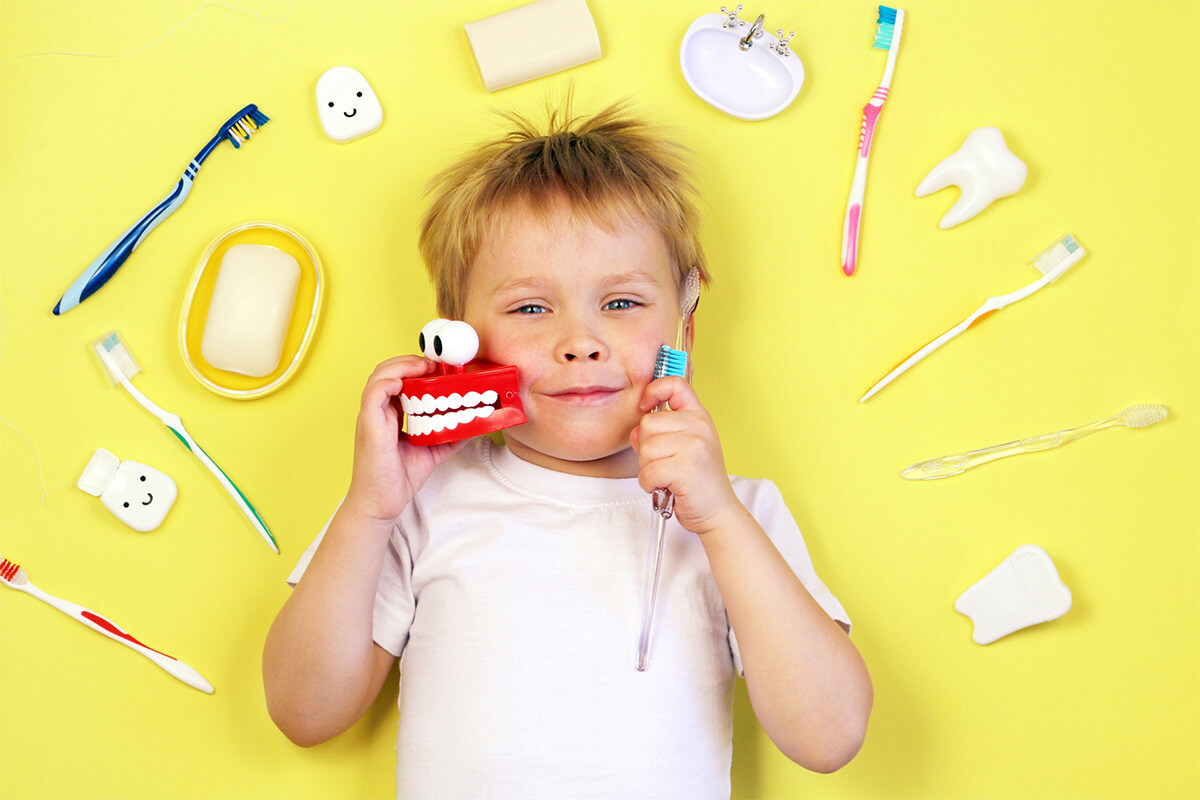A root canal is a common dental procedure used to treat a tooth that is infected or at serious risk of infection due to severe decay or damage. In pediatric dentistry, a similar and more common procedure is a pulpectomy that is typically performed only on baby teeth.
If your child has a baby tooth that is infected or decayed, your child’s dentist may recommend a pulpectomy. In some cases the tooth may need to be extracted. Here’s what you need to know about dental treatment for baby teeth.
What is a Root Canal?
A root canal is a procedure that removes all of the dental pulp from the inside of the tooth. Dental pulp is the soft tissue at the center of each tooth made up of blood vessels and nerves, the part that is susceptible to infection. If a tooth is infected or at risk of infection due to significant decay or damage, a root canal can often save the tooth.
A small hole is made in the tooth to access the root canal. The dental pulp is removed, the tooth is cleaned out, and the pulp is replaced with a filler material. Then the tooth is fitted with a dental crown to protect the remaining tooth material, allowing the natural root to stay in place to support the tooth.
What is a Pulpectomy?
A pulpectomy is similar to a root canal in the fact that the pulp is removed and replaced with a filler material. One difference between a root canal and a pulpectomy is that the filler material used in a pulpectomy is not permanent; it can be resorbed over time as the tooth becomes ready to be naturally shed. Another difference is that a baby tooth will not receive a crown after a pulpectomy in most cases.
What is a Dental Crown?
A dental crown is a tooth-shaped cover placed over a damaged tooth. When there is not enough enamel left for a filling, a crown can fit over the remaining enamel for a secure restoration. A crown allows the natural root to stay in place for support and provides a natural look and function.
Is it Worth Treating a Baby Tooth?
It is common to question the relevance of treating a baby tooth that will just fall out later on. There are a few factors used to determine whether or not it is worth treating a baby tooth with a pulpectomy:
- Is the tooth ready to be shed? If a baby tooth is already loose or it appears that the permanent tooth is ready to come in underneath it, treating it with a pulpectomy or root canal may not be necessary.
- Can the tooth be saved? If the damage to the tooth is too severe or if the tooth is already dead, it may need to be extracted rather than treated.
If the tooth is not ready to be shed, a pulpectomy can restore the tooth and keep it healthy until the permanent tooth is ready to come in. Baby teeth serve an important purpose as placeholders for the permanent teeth. They also allow children to chew and develop proper speech.
Problem Tooth? Schedule a Dental Visit
If your child complains of a toothache, has a discolored tooth, or if it’s been more than 6 months since their last visit, it’s time to schedule a dental appointment. Dental Associates for Kids Only, LLP is a pediatric dental practice serving children of all ages. We can assess your child’s tooth or teeth to determine what restorative treatment would be appropriate. In many cases we can preserve the baby tooth until it is ready to be shed naturally, which is best for your child’s dental health.
Call 516-625-3806 or contact us today to learn more and schedule an appointment.

